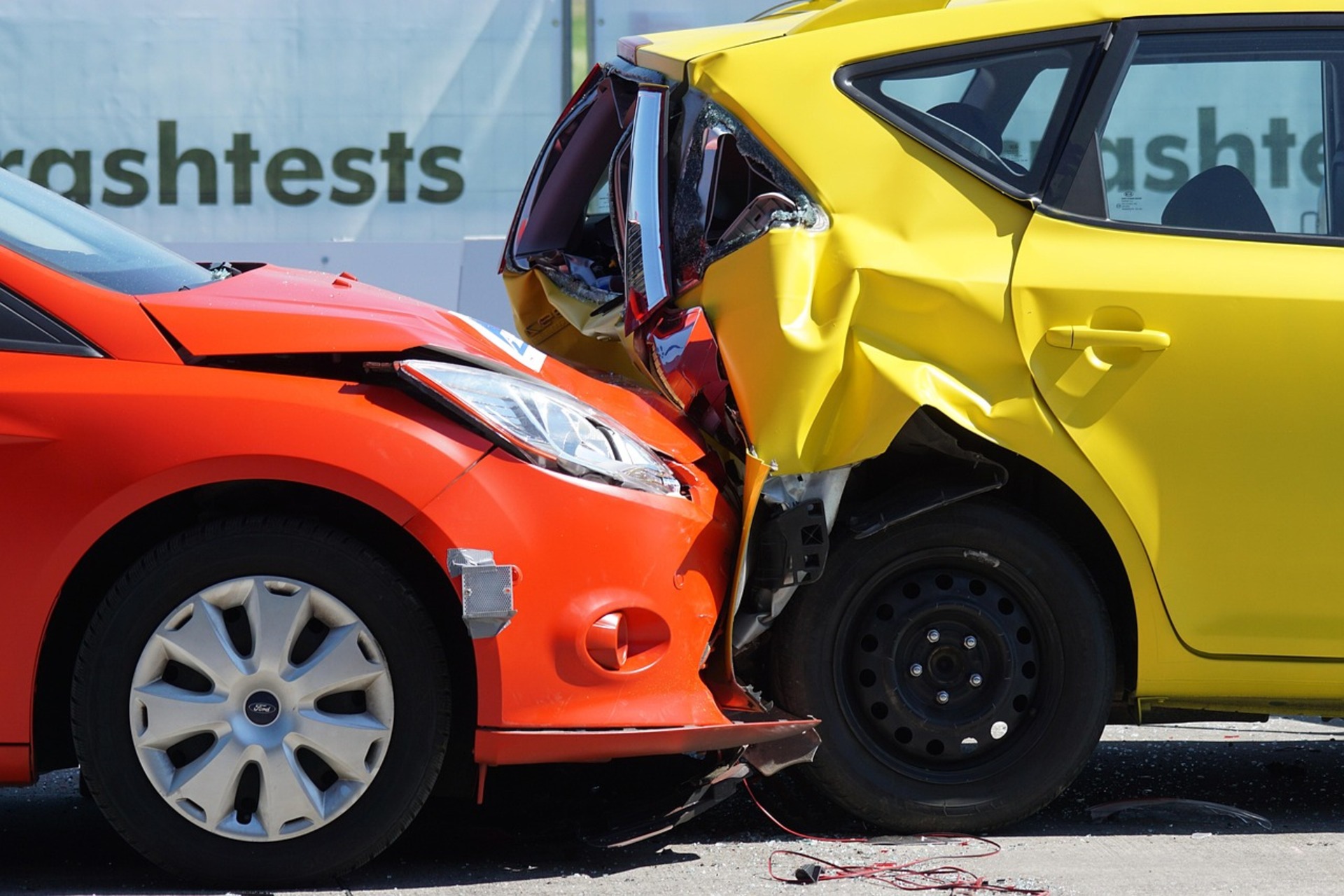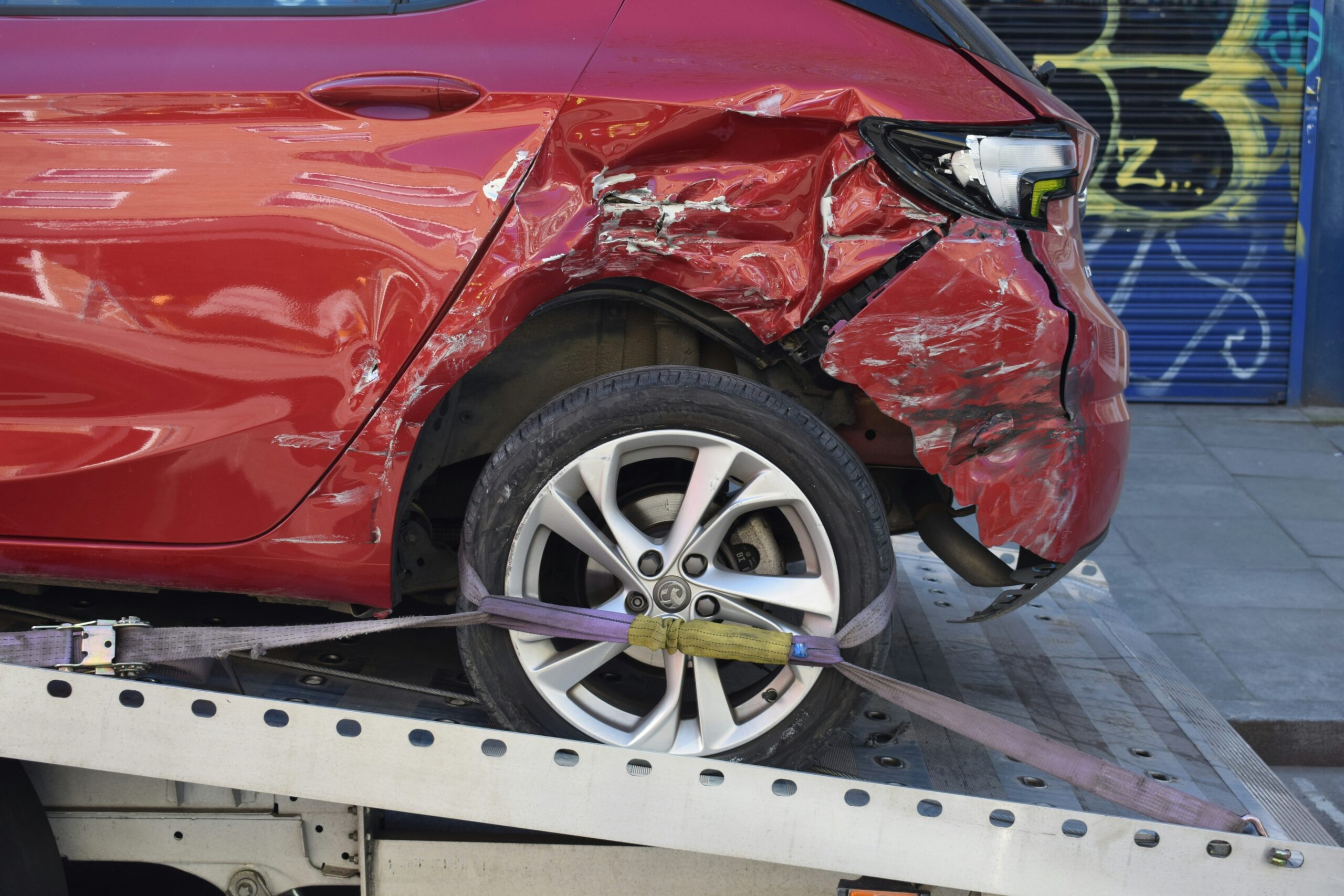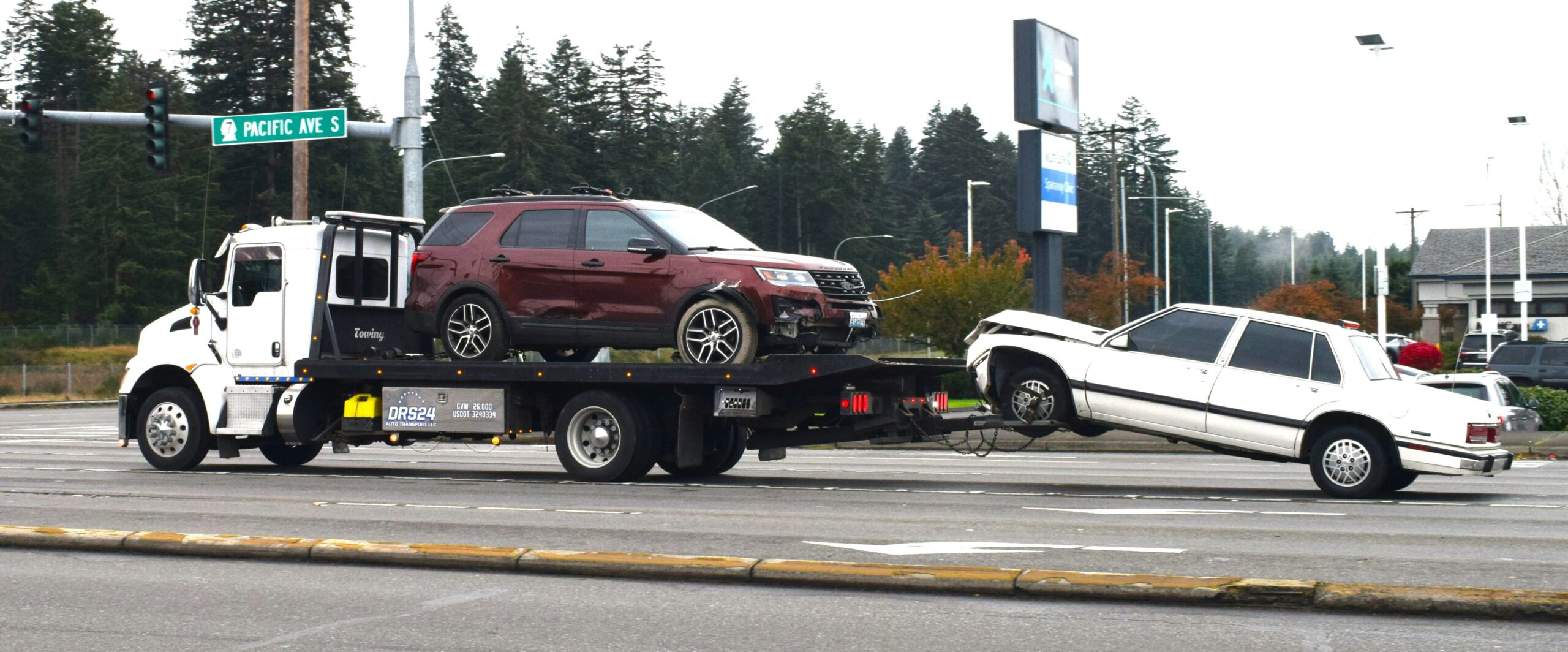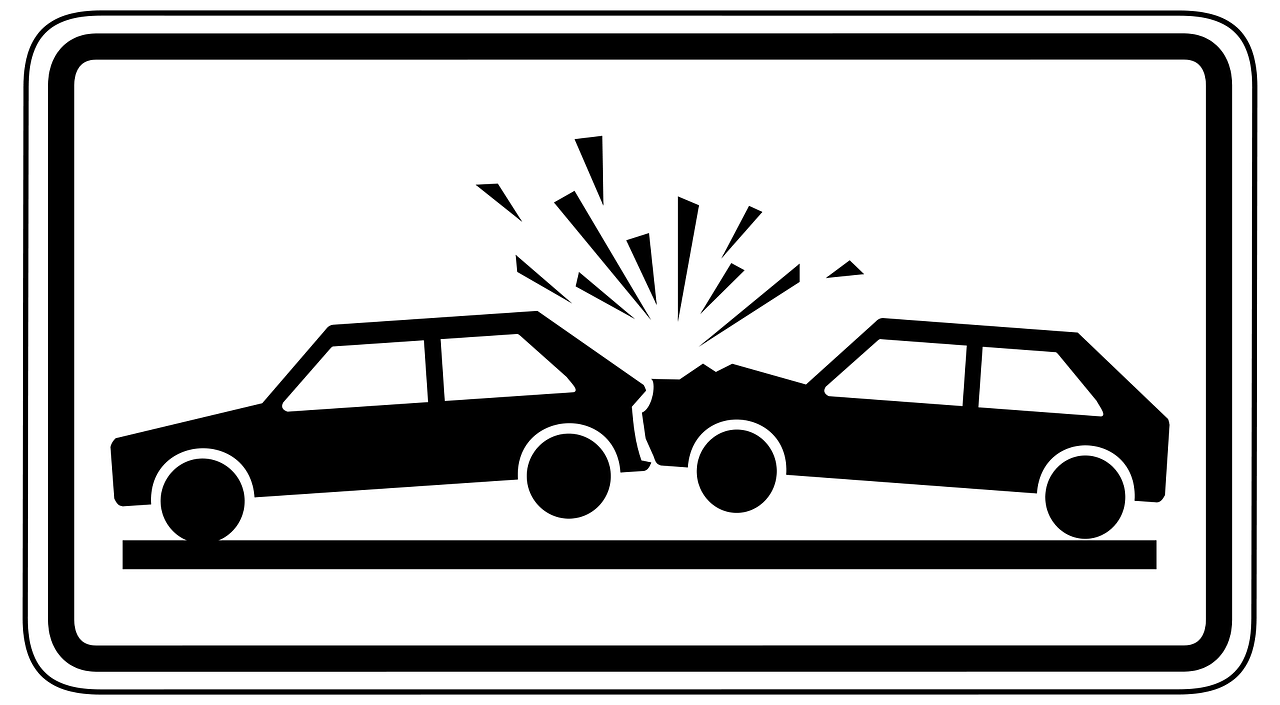
In Georgia, the driver who rear-ends another vehicle is typically presumed to be at fault in a rear-end collision.
However, this presumption can be overturned in certain circumstances where the front driver’s negligence contributed to the accident. Georgia follows a modified comparative negligence approach in these cases.
The aftermath of a rear-end car accident can be confusing and stressful. You might be dealing with injuries, vehicle damage, insurance claims, and uncertainty about who’s legally responsible for the accident. Understanding fault in a rear-end collision is essential for securing proper compensation.
Without proper legal guidance, you risk accepting an unfair settlement or being wrongfully found at fault for the accident that wasn’t your fault.
Our Duluth car accident attorney can help you navigate the complex legal process after a rear-end collision and fight for the compensation you deserve if you’ve been involved in a car accident.
If you hit someone from behind, is it always your fault?
In Georgia, hitting someone from behind usually creates a rebuttable presumption that you’re at fault in rear-end collisions. This means you’re presumed responsible for the accident unless you can provide evidence proving otherwise.
Georgia courts typically view rear-end accidents this way because the rear driver has a duty to maintain a safe following distance and avoid a collision.
However, there are situations where the front driver may share fault or be entirely at fault:
Who is at fault in a rear-end collision involving 3 cars in Georgia?
In a three-car rear-end collision in Georgia, determining fault becomes more complex and usually requires a thorough investigation. Typically, the driver of the last vehicle is presumed at fault for hitting the middle car, which then collides with the front vehicle in a chain-reaction car accident. Car collisions like these often involve multiple liable parties.
However, fault distribution may change depending on each driver’s actions. For example, if the middle driver was following too closely to the front car, they might share liability. Georgia’s modified comparative negligence system allows for proportional percentage of fault assignment among multiple parties in a car accident in Georgia.
If you hit someone from behind, you may have questions about liability and how it impacts your case. Contact our experienced attorneys today to discuss your situation
Can you be at fault when rear-ended?
Yes, the front driver can be at fault in a rear-end collision if theycreated a hazardous situation that the rear driver couldn’t reasonably avoid—even while driving carefully. Determining fault requires a close investigation of the specific facts surrounding the accident.
Here are situations where you might be at fault even if you were rear-ended:
- Brake checking: Deliberately and unnecessarily slamming on your brakes to intimidate or surprise the driver behind you can shift fault to you in a rear-end collision. This action is considered negligent behavior and can make you partially or fully at fault for the ensuing accident.
- Sudden stops without reason: Making an abrupt stop without valid cause on a roadway where other drivers wouldn’t expect it could make you partially liable for a resulting collision.
- Broken brake lights: Driving with non-functioning brake lights prevents the driver behind you from receiving proper warning when you slow down or stop.
- Reversing unexpectedly: Backing up suddenly at a stop sign, traffic light, or in traffic can cause a collision for which you’d be liable.
- Failing to use hazard lights: Not using hazard lights when your vehicle is disabled or moving extremely slowly on a roadway can contribute to fault in a rear-end collision.
- Unsafe lane changes: Cutting in front of another vehicle without sufficient space and then braking can result in a rear-end collision for which you share responsibility.
If you’ve been rear-ended in Georgia, seek our legal advice!
After being rear-ended in Georgia, your actions immediately following the accident can significantly impact your ability to recover damages.
Our experienced personal injury attorneys can help you navigate the complex legal process, deal with insurance companies, and ensure you receive fair compensation for your injuries and damages. Personal injury law is complex, and having professional guidance is vital.
💡 Real-case example: In one notable case, we secured a $500,000 settlement for a client who was rear-ended by a Netflix employee. The client sustained a significant back injury requiring surgery, and our firm successfully recovered compensation for medical treatment, pain and suffering, lost wages, and projected income loss.
Our Peachtree Corners car accident lawyer team has the experience and dedication to help you secure the maximum compensation for your injuries.
Liability in a rear-ended car accident according to Georgia law
Rear-end collisions in Georgia are governed by specific legal standards that help determine who is at fault for the crash.
Presumption of fault
In most cases, Georgia law presumes that the rear driver is at fault in a rear-end collision. This is based on the legal duty to maintain a safe following distance and remain alert to changing traffic conditions. The Georgia Department of Driver Services reinforces this in its driver’s manual, highlighting that following too closely (tailgating) is a leading cause of rear-end crashes—and that maintaining proper distance is key to preventing these accidents.
Rebuttable presumption
Although the rear driver is typically presumed at fault, this presumption can be challenged. Georgia case law allows the presumption to be rebutted with evidence that the front driver contributed to the crash through negligence. Examples include:
- The front vehicle had non-functioning brake lights
- The front driver made a sudden, unjustified stop
- The front driver reversed into the rear vehicle
- The front driver changed lanes abruptly and unsafely, cutting off the vehicle behind
Have questions about rear-end accident liability in Georgia? Talk to our lawyers today.
Factors influencing fault determination
Several factors play key roles in determining fault in rear-end collisions in Georgia. Insurance adjusters, attorneys, and courts consider these elements when assessing liability for a rear-end car accident and calculating compensation. Liability in a rear-end collision case often hinges on these key factors.
⚖️ Evidence collection becomes particularly important in cases where fault isn’t immediately clear or when multiple parties share responsibility. The quality and comprehensiveness of this evidence can significantly impact the outcome of your claim. Proving fault in car accident cases requires thorough documentation.
Comparative Negligence
Georgia follows a modified comparative negligence system under O.C.G.A. § 51-12-33. This means that:
- You can recover damages even if you’re partially at fault, as long as you’re 49 percent or less at fault
- Your compensation will be reduced by your percentage of fault
- If you’re 50% or more percent responsible for the accident, you cannot recover any damages
💡For example, if you’re found 20 percent at fault for a rear-end collision and your damages total $100,000, you would receive $80,000 (the total minus your 20% fault). This comparative fault system allows for nuanced determination of fault in complex accident scenarios.
Evidence and Documentation
Effective fault determination relies heavily on evidence gathered at the accident scene and in subsequent investigations. Critical evidence includes:
- Police reports documenting officer observations and preliminary fault assessments
- Witness statements from people who saw the accident occur
- Traffic camera or dashcam footage showing the collision
- Vehicle damage patterns that may indicate how the impact occurred
- Skid mark measurements that can help reconstruct the accident
- Electronic data from vehicle event data recorders (EDRs)
💡As noted by researchers at Emory University School of Law, proper documentation can significantly increase your chances of a favorable outcome in accident cases. Georgia uses this evidence to help determine liability in rear-end collision cases.
✔️ While evidence collection and documentation significantly influence fault determination, the strategic use of this evidence is equally important.
Let our experienced attorneys build the strongest case possible—contact us today to maximize your compensation.
Common scenarios and legal considerations in a rear-ended accident
To help you better understand liability in rear-end collisions, let’s explore some hypothetical—but common—scenarios and their legal implications in Georgia car accident cases.
Scenario 1: Sudden stops and brake-checking
Imagine you’re driving on I-85 near Atlanta. The driver ahead suddenly brakes hard for no apparent reason, causing you to collide with their vehicle despite maintaining a reasonable following distance.
Legally, while rear drivers usually bear responsibility, Georgia courts recognize that the front driver can share—or even bear full—liability if they stop abruptly or engage in “brake-checking” without justification. If you have evidence (like dashcam footage or eyewitness testimony) proving the front driver acted negligently or recklessly, it could significantly reduce your percentage of fault or shift liability entirely to them.
Scenario 2: Multi-car collision
Suppose you’re in heavy traffic on Peachtree Road, and the vehicle behind you fails to stop, pushing your car into the vehicle ahead. This creates a three-car collision scenario.
Determining fault in multi-vehicle crashes is complex because each driver’s actions affect liability distribution. Here’s how fault might typically be assessed:
| Vehicle Position | Common Fault Percentage | Typical Liability Factors |
|---|---|---|
| Last vehicle | 70–100% | Following too closely, distracted driving, speeding |
| Middle vehicle | 0–50% | Following too closely, improper braking |
| Front vehicle | 0–30% | Sudden stop, mechanical issues, unsafe lane change |
In this scenario, liability may spread across multiple drivers. Precise fault determination often requires accident reconstruction specialists and careful analysis of the circumstances surrounding each collision impact.
✔️Our experienced attorneys thoroughly analyze every detail, clearly identify the contributing factors in complex scenarios, and present compelling evidence to insurers and courts to maximize your potential compensation.
Exceptions to General Rules
Several situations may constitute exceptions to the standard rear driver liability presumption:
- Emergency scenarios where the rear driver must choose between hitting the vehicle ahead or causing a potentially worse accident
- Disabled vehicles left in travel lanes without proper warning signs or lights
- Vehicle malfunctions that prevent normal stopping capability
- Road conditions that make normal stopping distances impossible
💡According to the Georgia Department of Transportation, factors like road construction, weather conditions, and traffic patterns may also influence liability determinations in unusual cases. The dynamics of the collision often provide key insights into how fault is determined.
Legal advice and steps to take after a collision
Taking the right steps immediately after a rear-end collision can dramatically affect your ability to recover compensation. Your actions at the accident scene lay the groundwork for your claim and help determine liability.
⚠️ Time is critical after an accident. Evidence can vanish quickly, witnesses may become harder to find, and legal deadlines approach rapidly. Taking the following steps helps preserve your rights and strengthens your position.
📌 Contact our attorneys first:
The most effective step you can take right after your accident is contacting Brauns Law Firm. Our experienced attorneys immediately start protecting your rights, preserving evidence, and gathering key documentation.
We handle communication with insurers, accurately calculate your claim’s value, and aggressively negotiate for the maximum compensation you’re entitled to under Georgia law.
Research from Northside Hospital Atlanta confirms that accident victims who retain legal representation typically receive higher settlements than those who handle their own claims.
What to do if I get rear-ended?
- Ensure safety first: Move vehicles safely out of traffic if possible. Check for injuries and call 911 immediately for medical assistance and police support.
- Contact police: Ask officers to document the accident in an official report, which is essential evidence for your case.
- Seek immediate medical care: Even if you don’t feel pain right away, prompt medical care can detect hidden injuries and provide proof linking them directly to the crash.
- Gather evidence at the scene: Photograph vehicle damage, the accident scene, skid marks, and visible injuries. Collect witness contact details without discussing fault.
- Exchange driver information: Get names, insurance details, contact information, and license plate numbers from other drivers involved—again, avoiding discussions about fault.
- Report to your insurance: Notify your insurer about the accident promptly but avoid recorded statements until you’ve consulted with us.
- Document your losses: Keep detailed records of medical treatments, expenses, lost wages, and how your injuries affect your daily life.
- Work with our attorneys: Our legal team supports you at every step, from evidence gathering and managing insurance negotiations to maximizing your settlement based on all the above considerations.
Unsure what to do after a collision? Get legal advice from our team today and protect your right to full compensation.
Common injuries resulting from a rear-end accident
Whiplash is the most common injury in rear-end collisions, occurring when the head suddenly jerks backward and then forward. This motion can damage the soft tissues in the neck, causing pain, stiffness, and restricted movement.
Other common injuries include:
- Traumatic brain injuries (TBIs) from the head striking objects or from the brain impacting the skull
- Back injuries, including herniated discs and spinal compression
- Facial injuries from airbag deployment or impact with the steering wheel
- Wrist and arm injuries from bracing against the impact
- Psychological trauma, including anxiety and PTSD related to driving
Under Georgia’s at-fault insurance system, victims can seek compensation for several categories of damages. Here’s a summary table of common damages and the factors that influence their value:
| Type of Compensation | What It Covers | Factors Influencing Value |
|---|---|---|
| Medical Expenses | Hospital stays, surgery, physical therapy, medications, ongoing care. | Severity of injuries, treatment length, anticipated future needs |
| Lost Income and Earning Capacity | Lost wages, reduced hours, career limitations, inability to work. | Occupation, salary history, long-term work limitations |
| Pain and Suffering | Physical pain, emotional distress, daily life impairment. | Severity of injury, recovery length, permanent disability |
| Property Damage | Vehicle repairs or replacement, personal belongings. | Vehicle value, repair costs, replacement costs |
| Loss of Enjoyment of Life | Loss of ability to participate in hobbies, activities, or family life. | Extent and permanence of physical/mental impairments |
| Emotional Distress | Psychological trauma, anxiety, PTSD resulting from the collision. | Mental health diagnosis, documented psychological treatment |
✔️ How we help: Our attorneys carefully assess all potential sources of compensation to ensure your settlement accurately reflects the total impact of your injuries and losses.
Want to Know What Your Rear-End Accident Case Might Be Worth?
If you’ve suffered injuries in a rear-end collision, it’s natural to wonder what kind of compensation you could receive. Our free car accident settlement calculator gives you a quick estimate based on your medical costs, lost income, and the overall impact of the crash.
Use the calculator today to get a clearer idea of your potential settlement, then contact our experienced Georgia car accident attorneys for a free consultation. We’ll review your case in detail and fight to recover the full compensation you deserve.
Disclaimer: The results from this calculator are estimates only and do not constitute legal advice. Every case is unique, and actual settlements depend on multiple factors. For a personalized evaluation, consult with our experienced lawyers.
Car Accident Settlement Calculator
Statistical data relating to rear-end collisions
✔️Rear-end collisions are a significant cause of traffic accidents both nationwide and in Georgia. According to the National Highway Traffic Safety Administration (NHTSA), rear-end collisions account for approximately 29% of all crashes resulting in serious injuries across the United States.
✔️In Georgia, between 2017 and 2021, the number of suspected serious crash injuries reported by law enforcement increased by 66%, from 5,370 in 2017 to 8,937 in 2021, according to the Georgia Governor’s Office of Highway Safety. This highlights the growing severity of traffic accidents in Georgia, including rear-end collisions.
Additionally, traffic fatalities in Georgia reached alarming levels in 2021, with 1,797 motor vehicle traffic fatalities recorded, the highest number in the past decade. This resulted in 1.49 traffic fatalities for every 100 million vehicle miles traveled (VMT), underscoring the deadly nature of motor vehicle crashes in the state.
✔️Further research from the National Safety Council indicates thatdriver inattention is the primary contributing factor in 87% of rear-end collisions, with the increasing prevalence of distracted driving, particularly texting while driving, leading to a 7% increase in rear-end accidents over the past five years.
Understanding fault and the factors that contributed to the rear-end collision is critical in securing the proper compensation for victims. Fault determination directly impacts the settlement amount, and establishing clear liability is a vital step in ensuring fair compensation for medical bills, lost wages, pain and suffering, and other damages.
Hypothetical rear-end scenario in Georgia
💡Hypothetical Scenario: A commuter was driving home during rush hour on I-85 in Atlanta. Traffic ahead slowed suddenly due to construction. The driver applied brakes gradually and came to a complete stop. While properly stopped, their vehicle was struck from behind by an SUV traveling approximately 25 mph in a typical rear-end collision scenario.
- Impact: The rear-end collision pushed the commuter’s car forward several feet, causing significant rear-end damage.
- Injuries: The driver immediately experienced neck pain and stiffness but remained conscious.
- Police Response: Police arrived and cited the SUV driver for following too closely.
- Medical Attention: The commuter sought medical attention the following day and was diagnosed with whiplash and a mild concussion.
⚖️ Legal Analysis Under Georgia Law: Under Georgia law, this presents a clear case of presumed liability for the rear driver (SUV) in a rear-end collision case. The rear driver might attempt to argue that the sudden traffic slowdown created an emergency situation, but this defense would likely fail because of the following reasons:
- Proper Signage: The construction zone was marked with appropriate signage.
- Gradual Stop: The front driver stopped gradually and appropriately.
- Safe Following Distance: Georgia law requires all drivers to maintain safe following distances for prevailing conditions.
- Police Citation: The police citation creates a presumption of the rear driver’s negligence.
✔️Potential Damages for the Injured Commuter: The injured commuter would have a strong claim for damages including:
- Medical Expenses: For treating whiplash and concussion.
- Lost Wages: For missed work during recovery.
- Pain and Suffering: Compensation for physical and emotional distress.
- Vehicle Repair or Replacement Costs: For the damage caused to the commuter’s car.
⚠️Impact of Partial Fault Under Georgia Law: If you’ve been found partially at fault for the collision, this might impact your recovery.
Under Georgia’s modified comparative negligence law, even if the commuter was found 10% at fault (perhaps for having one non-functioning brake light), they could still recover 90% of their total damages.
If you’ve been rear-ended in Georgia, trust Brauns Law for expert tailored advice.
Being the victim of a rear-end collision can leave you facing physical pain, emotional trauma, and financial stress. We have substantial experience with rear-end collision fault cases and can help prove fault effectively.
Our experienced team delivers exceptional customer service while aggressively pursuing the compensation you deserve. We handle every aspect of your case — from investigating the accident and documenting your injuries to negotiating with insurance companies and representing you in court if necessary. Always at fault determinations require professional legal analysis, which we provide.
Contact our experienced Georgia car accident lawyers at 404.383.4493 or visit our contact page to schedule your free consultation. Let us focus on your legal concerns while you concentrate on your recovery.
FAQs
How long do I have to file a claim after a rear-end collision in Georgia?
In Georgia, you generally have two years from the accident date to file a personal injury lawsuit and four years for property damage claims. Missing these deadlines likely means losing your right to compensation, so contacting our attorney promptly is important. Fault in rear-end collisions must be established within these timeframes.
Can I still recover damages if I’m partially at fault for a rear-end collision?
Yes, under Georgia’s modified comparative negligence law, you can recover damages as long as you’re less than 50% at fault. Your compensation will be reduced by your percentage of fault, so if you’re 20% responsible, you’ll receive 80% of your damages. This is how fault for a rear-end collision is handled in Georgia.
Will my insurance rates increase if I wasn’t at fault in a rear-end collision?
Georgia law prohibits insurers from raising rates for accidents where you weren’t found at fault. If your insurer threatens a rate increase despite you being the not-at-fault victim of a rear-end collision, consider consulting with our attorney who can help protect your rights. Being considered at fault incorrectly could impact your rates unfairly.
What compensation can I recover for a whiplash injury from a rear-end collision?
Rear-end collision settlement amounts including whiplash injury compensation typically includes medical expenses, lost wages, pain and suffering, and future medical treatment if needed. Settlement values in Georgia range from $2,500 for minor cases to $30,000+ for severe cases with documented ongoing complications.
Should I accept the insurance company’s first settlement offer after a rear-end collision?
Initial insurance settlement offers are typically much lower than what your case is worth. Before accepting any offer, consult with our experienced personal injury attorney who can evaluate your case and negotiate for fair compensation that covers all your damages.

















